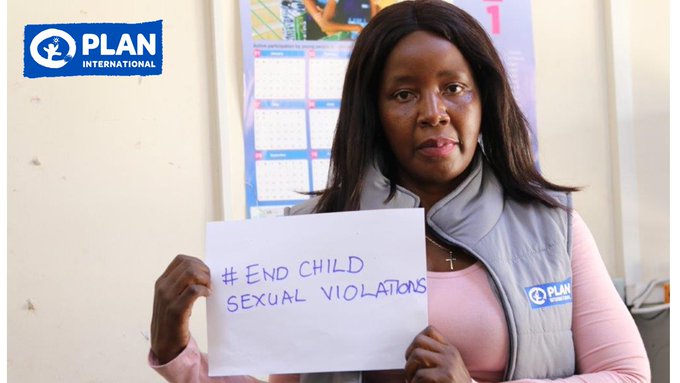|
Getting your Trinity Audio player ready…
|
The case of a teenage girl who died while giving birth in Marange has prompted organisations like Plan International Zimbabwe and the Freedom of Rights Under Sovereign (FORUS) to issue statements encouraging lawmakers and stakeholders to expedite the crafting of laws that protect the girls from child marriage.
In a statement yesterday, Plan International Zimbabwe said it acknowledges and applauds the Zimbabwe Republic Police (ZRP) for investigating the circumstances around the death of 14-year-old Anna Machaya while giving birth at an apostolic shrine in Bocha, Mutare. This comprehensive investigation has resulted in the arrest of Hatirarami Momberume (26) who is now being charged with raping the deceased.
“We also commend the ZRP for apprehending the parents of the deceased who are facing criminal charges for defeating the course of justice by producing false identification documents in an attempt to cover up the fact that the deceased was a minor. There are additional allegations that they had attempted to pledge their nine-year-old minor to Momberume as a replacement to the late Anna. We will continue to watch developments in this case, as it is a litmus test for our criminal justice system, in as far as the protection of girls from child marriage and sexual violations is concerned.
“These arrests, while commendable, will not deter our cause for legal reforms to protect girls from falling victim to the practice of child early and forced marriage. It is our firm belief that this case is a rallying point for all stakeholders who are invested in ensuring that the practice of child marriage becomes a thing of the past in Zimbabwe,” Plan International Zimbabwe said.
The Constitution of Zimbabwe Amendment (No.20) Act, 2013 makes it clear in Section 81 that every person under the age of 18 is a child. In addition, section 26 requires the state to take measures to ensure that children are not pledged in marriage. Section 78 further confers the right to found a family to persons aged at least 18.
Plan International Zimbabwe brought to the attention of all stakeholders the Loveness Mudzuru & Ruvimbo Tsopodzi vs Minister of Justice case of 20 January 2016. The landmark ruling made by the then Deputy Chief Justice Malaba nullified Section 22 of the Marriages Act (5:11) that allowed children to be married as young as 16. In this ruling, Section 78 of the Constitution of Zimbabwe was interpreted to mean that no child under 18 shall be married in Zimbabwe.
Plan International reiterated the need to move with speed on the alignment of laws to the constitution and the expediting of progressive laws such as the Marriages Bill in the protection of girls. The Marriages Bill clearly outlaws the marrying, pledging, or betrothal of children by any person and further criminalises the role of parents and/or guardians in the commission of the offence.
“As proven by the Anna Machaya case, the absence of specific legislation on child marriage, disharmony, and poor implementation of policies combined with negative social norms in communities create fertile ground for the continuation of this practice in the country.
“Child Marriage” and Teenage Pregnancy are retrogressive and unacceptable. Anna Machaya was in school aiming to achieve her hopes and dreams before these were dashed. She deserved better. We ask that all stakeholders including lawmakers, traditional, religious, and community leaders, and the media act now to protect girls by influencing and advocating for the enactment of laws that protect them. Our progressive Constitution has laid a solid foundation for the upholding of human rights for all in Zimbabwe.”
FORUS called for the establishment of advocacy and legal advice centres by civil society organisations speacialising in the provision of legal services to partner religious and other local traditional leadership institutions to advocate for ending child marriages at the grassroots level.
“The adage that there is no excuse for ignorance of the law holds but as FORUS, we advocate for the establishment of advocacy and legal advice centres by civil society organisations speacialising in the provision of legal services to partner religious and other local traditional leadership institutions to advocate for ending child marriages at the grassroots level.
“This should be accompanied by an expeditious process to align the laws to the Constitution – our supreme law of the country so that everyone comes on board and unites to end the menace of child marriage,” Manyara Irene Muyenziwa, the FORUS president told Spiked Online Media.
